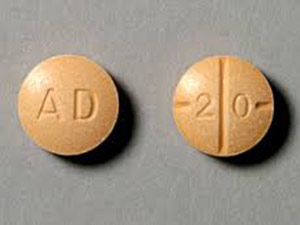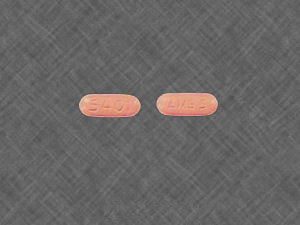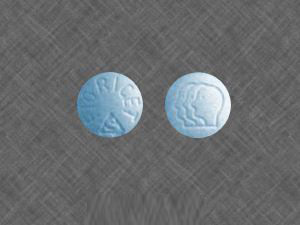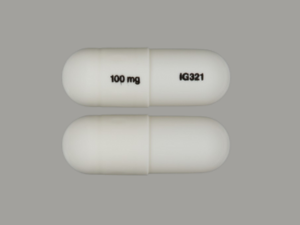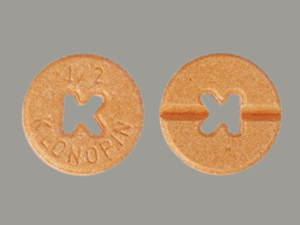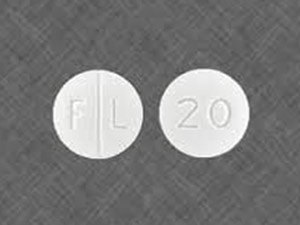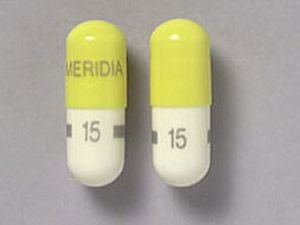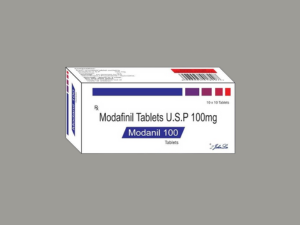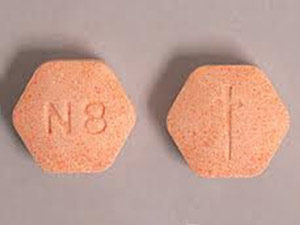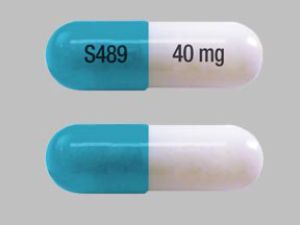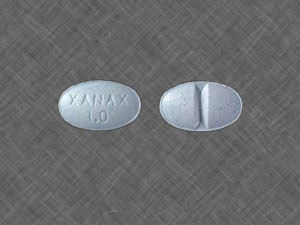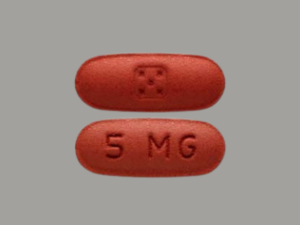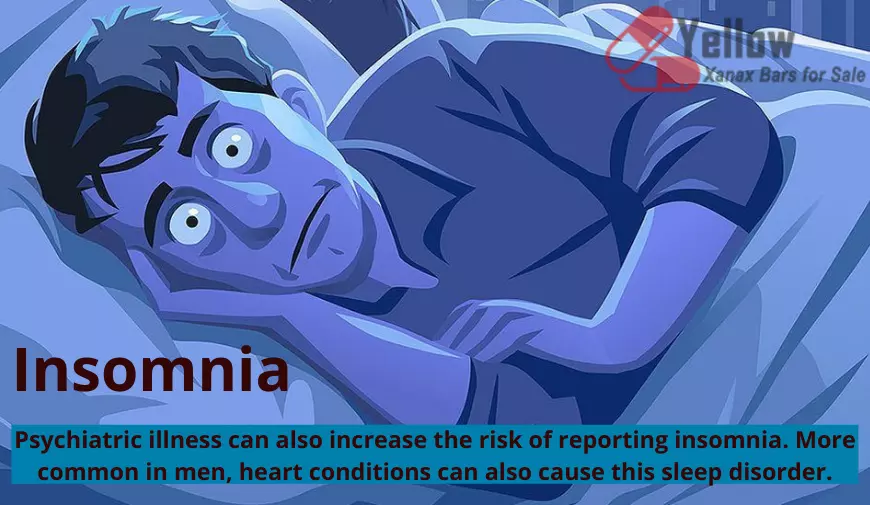
Insomnia causes and treatment
An overview of illness
Insomnia refers to a widespread type of sleep disorder. An individual living with insomnia may find it challenging to fall asleep, stay asleep, or both. Apart from disruptive sleep, other insomnia symptoms may include:
- Irritability, depression, or anxiety, poor concentration, and lack of focus
- Daytime fatigue or sleepiness, low energy or motivation
- Gastrointestinal symptoms, tension headaches
- Worry or anxiety concerning sleep, using alcohol or medication to fall asleep
- Lack of coordination resulting in errors or accidents
- Difficulty working, studying, or doing any activity that requires social interaction
Quality sleep of about 7 to 8 hours plays a vital role in the overall well-being of an individual. Not achieving the rest you need regularly can have a massive impact on mental and physical health, not to mention the quality of life. About a third of all adults in the United States report some insomnia symptoms. Also, 6 to 10 percent of adults have symptoms extreme enough to meet the required diagnostic criteria for Adhd and insomnia disorder.
What causes insomnia?
Insomnia can result from a wide range of physical and psychological factors. The primary cause is often temporary life problems, such as short-term stress. This sleep disorder stems from an underlying medical health condition in some other cases. Common causes include:
- The room is too cold, hot, noisy, or an uncomfortable bed
- Switching shifts at work, having jet lag, or dealing with other alterations to the body’s internal clock
- Getting too little exercise, having bad dreams, or night terror
- Caring for your loved one in the house, if it disrupts sleep
- Using recreational drugs, such as ecstasy or cocaine
In some people, mental health issue or stress is responsible for insomnia. An individual may be experiencing anxiety, depression, bipolar disorder, or schizophrenia. Other health problems that may trigger sleeplessness include restless legs syndrome, sleep apnea (interrupted breathing during sleep), overactive thyroid, chronic pain, COPD (chronic obstructive pulmonary disease), or gastrointestinal reflux disease, known as GERD.
Another health condition symptoms or natural transition can often lead to difficulty sleeping. For example, during menopause, hormonal changes can result in night sweats, interrupting your sleep. People with Alzheimer’s disease experience changes in sleep patterns due to disruptions in the brain. Also, some individuals have a rare genetic sleep disorder called fatal familial insomnia (FFI), which prevents sleep and even causes death due to less or no sleep.
Medications
Here is a list of some prescribed medications and categories of drugs that may cause insomnia:
- Corticosteroids, alpha-blockers, beta-blockers, statins
- Angiotensin II receptor blockers, or ARBs
- Angiotensin-converting enzyme, or ACE inhibitors
- SSRIs, or selective serotonin reuptake inhibitors, antidepressants
- Nonsedating H1 agonists
- Cholinesterase inhibitors
- A combination of chondroitin and glucosamine
What causes insomnia in females?
The female sex hormones progesterone and estrogen play a major role in various processes responsible for sleep regulation. Fluctuating levels of these hormones during pregnancy, menstruation, and perimenopause can lead to insomnia. Sleep is a dynamic procedure regulated by various internal and external factors. These factors vary throughout a female’s life and may profoundly impact sleep from childhood to the menopausal phase of life.
Pregnancy and Postpartum
In females, pregnancy and postpartum can also cause insomnia. Pregnant women find it challenging to get quality sleep. During pregnancy, not only do hormone level changes, but one needs substantial energy to support a growing fetus. Both the quality and amount of sleep usually decline over the course of pregnancy, with symptoms reaching a peak in the third trimester. Some research states more than 3 in 4 women experience sleep problems during pregnancy, with most having trouble falling or staying asleep.
Sleep difficulties are also pretty normal after the baby arrives. Caring for a baby is around-the-clock work for a mother. However, many new mothers and caregivers can stay in this condition for more than expected and need medical consultation.
Insomnia in men
Insomnia in men is associated with several lifestyle factors such as physical inactivity, obesity, and alcohol dependency but not with aging. Medical conditions such as joint and low back disorders can also cause Alcohol insomnia in men. Psychiatric illness can also increase the risk of reporting insomnia. More common in men, heart conditions can also cause this sleep disorder. Although, insomnia in men is less common than in women.
Types of insomnia
Experts describe insomnia in several types, depending upon their specific characteristics. Here, we will give information about the five most popular and widespread types of insomnia, but before that, we will learn about the basis of this classification.
According to the duration, this sleep disorder is classified into two broad categories: acute or transient insomnia (a short-term sleep problem) and chronic insomnia (can last for months or even years).
Health experts also classify it by cause into two categories: primary insomnias (an issue by itself) and secondary insomnia (a result of another health issue). In addition, the classification by severity of the sleep disorder states there are three types:
- Mild consists of a lack of sleep that results in extreme tiredness
- Moderate is more likely to affect daily functioning
- Severe has a notable impact on our daily life
Acute : refers to short period sleeping difficulties that usually last for not more than a few weeks.
Chronic : refers to the sleep disorder that affects your sleep for three or more days each regularly, usually for a duration of three months or longer.
Onset : describes trouble falling asleep. Difficulty getting to sleep may happen because of caffeine use, mental health condition symptoms, or other common insomnia triggers. It may also develop with other similar sleep disorders.
Maintenance insomnia: refers to difficulty staying asleep once you get to sleep or making you wake up consistently early. This type of sleep disorder might link to underlying medical and mental health symptoms; lying awake or turning sides on the bed and worrying you would not get enough sleep can worsen your condition.
Behavioral insomnia of childhood: involves consistent sleeplessness, refusal to go to bed, or both. Children growing up with this sleep disorder often benefit from learning self-soothing strategies and following a better regular sleep routine.
Is insomnia a mental illness?
Insomnia is rarely a mental illness or an isolated medical condition but rather a symptom of any other medical problem. If there is a link between your sleep disorder and mental health, your medical healthcare professional can investigate it better.
It is a fact that sleep directly impacts our physical and psychological well-being. Insomnia and other sleep problems are common symptoms of several mental illnesses, including depression, anxiety, bipolar disorder, schizophrenia, and attention deficit hyperactivity disorder (ADHD).
Does Covid cause insomnia?
We all agree that the Covid situation is pretty stressful for us, and it is challenging to sleep well during an ongoing pandemic. Some nights of little or no sleep are okay, but if you feel that is increasing or affecting your life, consult your medical healthcare professional.
Stress-related insomnia due to the pandemic has been reported, and people have even given it a name: coronas Omnia. The reason behind this inability to fall or stay asleep is not just the virus or its new variant (Omicron and Delta); it is more about the changes due to the virus.

